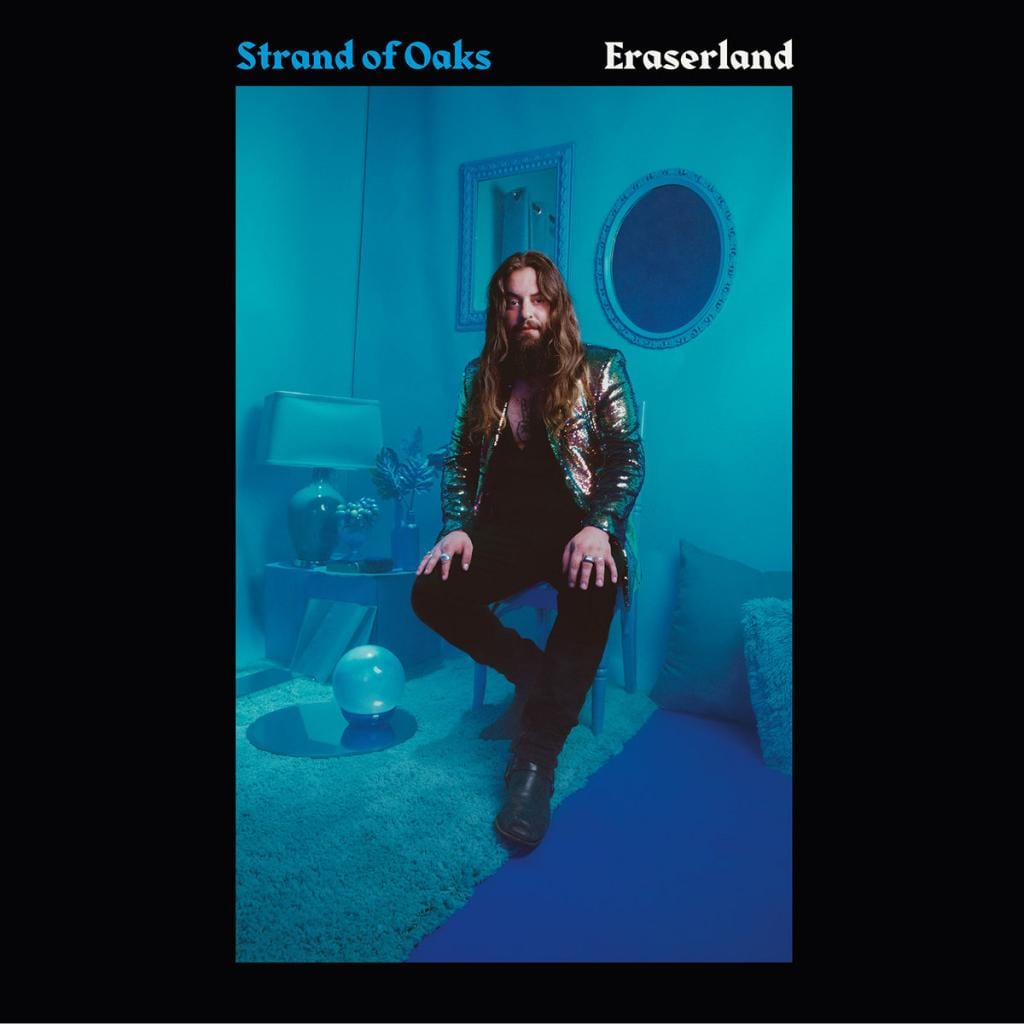Strand of Oaks Finds New Confidence, New Focus

“I turn my back on the meaning of life,” Timothy Showalter, aka Strand of Oaks, offers on the opening track of his new album, Eraserland; his way, perhaps, of expressing surrender, relinquishing his illusions regarding fate and self-determinism, and aspiring to a state more akin to Buddhism’s Middle Way. The song’s sparse intro builds into a fully instrumented sound, reconciling Showalter’s career-long intrigue with Wilco’s alt-Americana and the otherworldly mixes of Radiohead. Controlled use of effects, especially on vocals, provides atmospheric context, enhancing Showalter’s melancholic bent while highlighting melodic nuances. One can visualize the scene: lighters held high on a summer evening, the crowd swaying under starlight.
On “Keys” and “Visions,” Showalter embraces the Romanticism of, among others, Bruce Springsteen: “We should just run away / maybe to the beaches maybe LA.” And: “Visions I can hear them / I can barely tell what’s real.” Both songs, however, feature contemporary soundscapes that meld post-punk, rave, techno, and shoegaze elements. In this way, Showalter embraces aspects of his heritage while forging fresh musical gestalts. (If younger artists such as Ezra Furman and Kyle Craft were influenced by Springsteen, I’d be surprised if that influence didn’t occur via Strand of Oaks/Showalter).
Jean-Paul Sartre wrote, “Freedom is what we do with what is done to us,” and Showalter seems to have arrived at this conclusion as well. He exceeds the persona/mythos he strived for and was occasionally hampered by in earlier work, his past now a reserve from which he more loosely draws, autobiographically and fictively. On “Final Fires,” he offers a jocular take on the inevitability of change: “All my friends they think I’m crazy / I guess it’s time I dyed my hair.” With “Moon Landing,” he demonstrates a flair for surreal imagery and nonlinear narratives, tipping his hat to Nick Cave, particularly 2008’s Dig, Lazarus, Dig. Jason Isbell contributes an adrenalized guitar solo.
With “Ruby,” Showalter flirts with melodic and vocal tones reminiscent of David Bowie. The title song features an engaging vocal harmony between Showalter and the talented Emma Ruth Rundle. The project closes with the epic (9:21 in length) “Forever Chords,” built on a Coldplay-esque piano-driven intro that swells in presence and intensity, a ringing and distorted electric guitar part tapping into guitar-hero formulae. Showalter’s falsetto, at times reminiscent of Jason Molina (one of Showalter’s pantheonic muses), warbles above the instrumentation. Feedback-ridden notes vibrate and throb amidst pseudo-jazzy rhythms. In this way, the album runs full circle, opening and closing with anthemic references and sublime applications of melody and volume.
Throughout his oeuvre, Showalter has consistently displayed a wide range of musical affinities. One might say that he’s often struggled with establishing his own artistic identity, torn between his influences and his aspirations. Eraserland, like previous releases, draws liberally and versatilely from the popular canon; with his latest iteration, however, Showalter more consummately subsumes these precedents within his own still-evolving brand. While earlier sets included vital and memorable work, Showalter is now standing on — and floating above — elevated ground.



